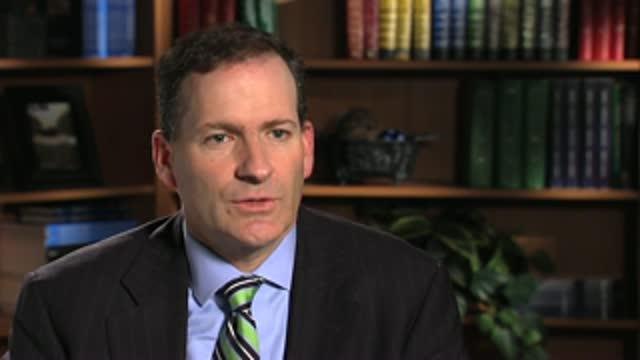At a median follow-up of 29 months, 136 patients in the ADT-only group had died versus 101 in the group that received both drugs. This translated into a median overall survival of 57.6 months for men who received early chemotherapy compared with 44 months in the group given ADT as the only initial treatment – more than a year of additional life.
In the 520 patients who had high-extent disease (whose cancer had spread to major organs and/or the bones), treatment with ADT plus docetaxel had an even greater benefit: these men had a median overall survival of 49.2 months versus 32.2 in the ADT-only group – a difference of 17 months.
Earlier results of the trial were made public by the NCI in December 2013 because of the strong positive findings. Sweeney's presentation at ASCO covers updated and more detailed results.
Most of the striking survival benefit with early use of docetaxel was found in men with a high burden of metastatic disease. Sweeney said more time is needed to assess the benefit of the drug combination in the men with lesser burdens of disease, as their median survival has not yet been reached.
The most serious side effects were neutropenic fever and neuropathy; one patient died as a result of treatment.
The addition of docetaxel not only lengthened survival but delayed disease progression as measured by an increase in prostate-specific antigen (PSA), the appearance of new metastases, or worsening symptoms. The men receiving docetaxel had an average of 32.7 months before the cancer progressed by worsening scan results or symptoms, compared to 19.8 months for hormone therapy alone.
"This study shows that early chemotherapy increases the chances that certain patients with metastatic prostate cancer have a longer time without symptoms from cancer, and also live longer," Sweeney said.

Dr. Christopher Sweeney talks about his new study showing a drug combination extends survival by more than a year in metastatic prostate cancer.
(Photo Credit: Dana-Farber Cancer Institute)

This is Dr. Christopher Sweeney of Dana-Farber Cancer Institute.
(Photo Credit: Dana-Farber Cancer Institute)
Source: Dana-Farber Cancer Institute